Syria war: Abdel Basset al-Sarout dies after Hama clashes
- Published
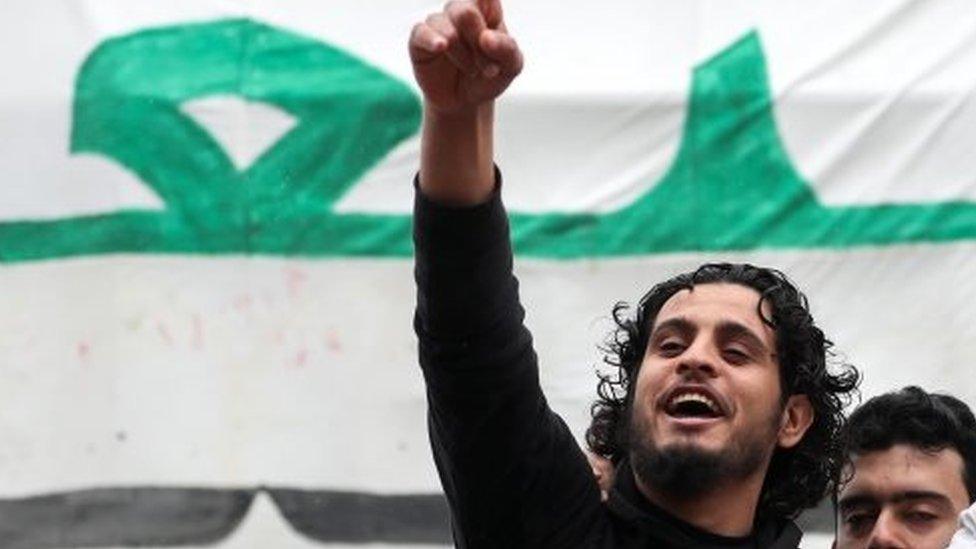
Abdel Basset al-Sarout was described as a "martyr" by a Syrian rebel commander
A Syrian footballer who became a symbol of the uprising against President Bashar al-Assad has died of wounds sustained in clashes in the north-west.
Abdel Basset al-Sarout, 27, died in the Hama province, his rebel faction says.
A promising goalkeeper for Syria's youth team, he sprang to prominence in his home city of Homs in 2011 as one of many who staged street protests.
He had survived a brutal government siege of Homs, although many of his family members were killed there.
The story of Abdel Basset al-Sarout in many ways traces the trajectory of the revolution in Syria - from the heady days of hope to the grim war of attrition that has kept President Bashar al-Assad in power, the BBC's Sebastian Usher says.
How did Sarout die?
His death was announced by a commander of the Jaish al-Izza rebel faction fighting in Hama.
The commander described Mr Sarout as a "martyr".
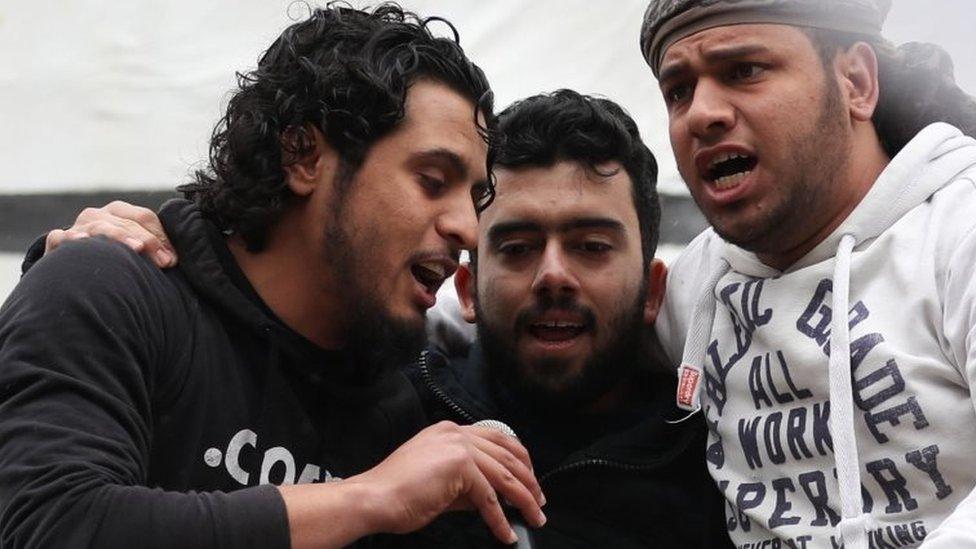
Abdel Basset al-Sarout (left) was seen by many as a voice of the Syrian revolution
Meanwhile, the British-based Syrian Observatory for Human Rights said he had been wounded in clashes between Thursday and Friday and died on Saturday.
The Syrian Network for Human Rights, a non-government organisation which monitors the Syrian war, also said he died on 8 June.
The Syrian army has not publicly commented on the reports.
Who was Sarout?
He was only 19 when the mass anti-Assad protests began in 2011.
With his long hair and a voice he used to sing in praise of the revolution, Mr Sarout soon became a symbol of that first peaceful phase of the uprising.
He famously stood side by side with another icon of the uprising - actress Fadwa Sulayman, who was a rebel voice from President Assad's own Alawite community.
But he took up arms as the government directed its full devastating firepower against Homs.
Mr Sarout later starred in the documentary Return to Homs, which portrayed his evolution from a talented athlete to a rebel fighter.
To Assad supporters, Mr Sarout was just another terrorist - proof of the government's claim that it had all along been battling an armed jihadist insurrection.
There were rumours that Mr Sarout subsequently pledged allegiance to the so-called Islamic State.
He denied this, but admitted he had considered the idea when IS seemed the only force strong enough to combat the government - a sign of how the rebel cause disintegrated.
Two years ago, Fadwa Sulayman died of cancer in exile in France.
Now, Abdel Basset Sarout is dead, too, fighting to defend the last rebel stronghold in Syria - which is itself dominated by a jihadist group that had him arrested in 2017 for protesting against its rule.
You may also want to watch:
From war-torn Syria to a new life in Wales
- Published12 April 2019
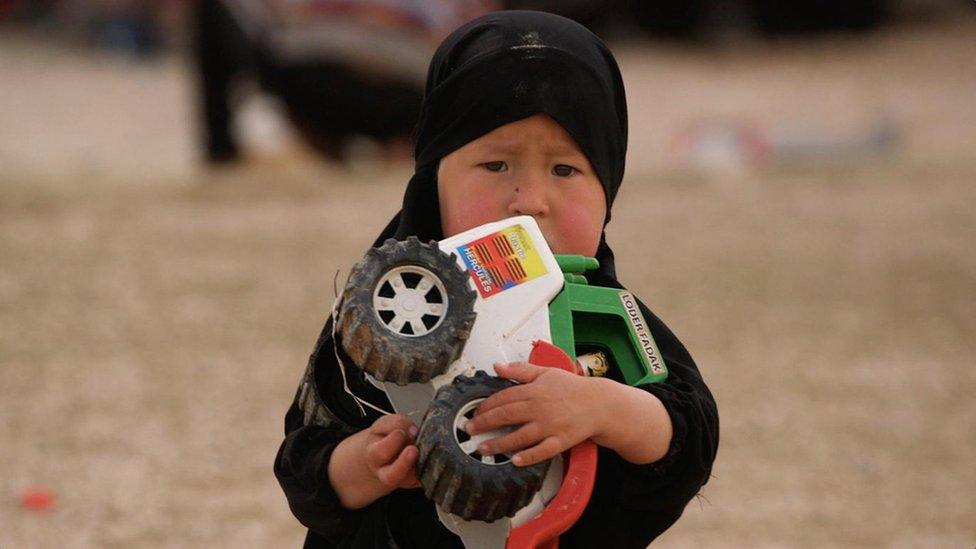
- Published23 March 2019
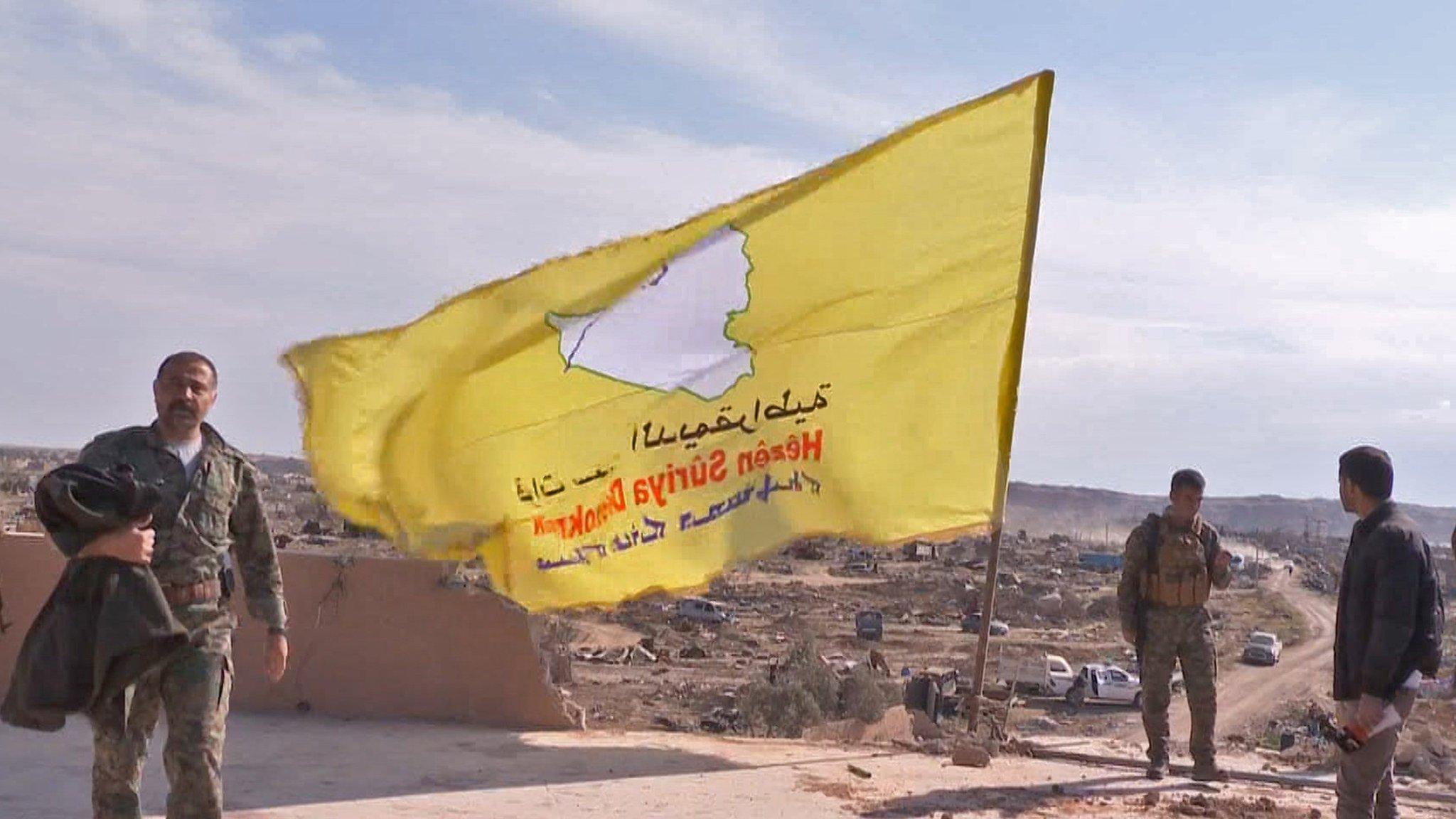
- Published26 March 2019
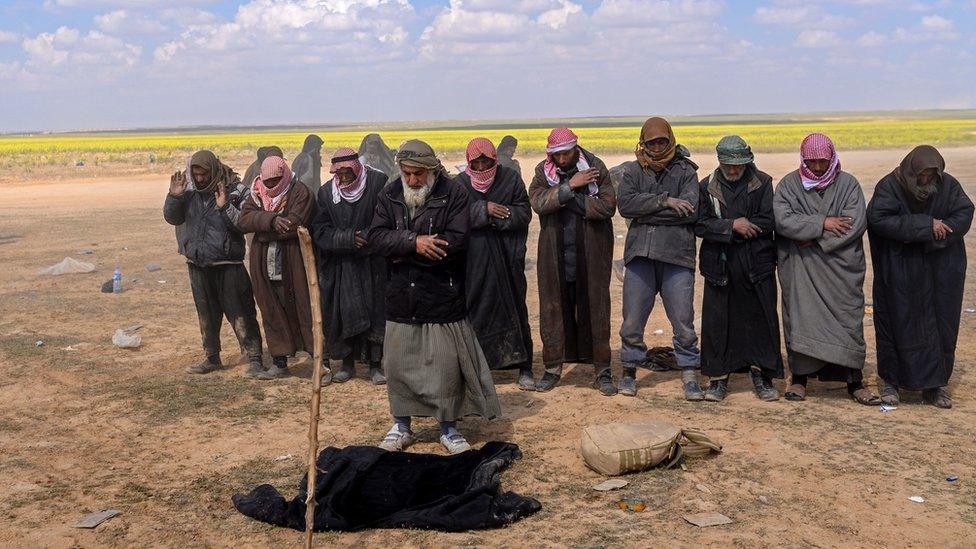
- Published7 January
